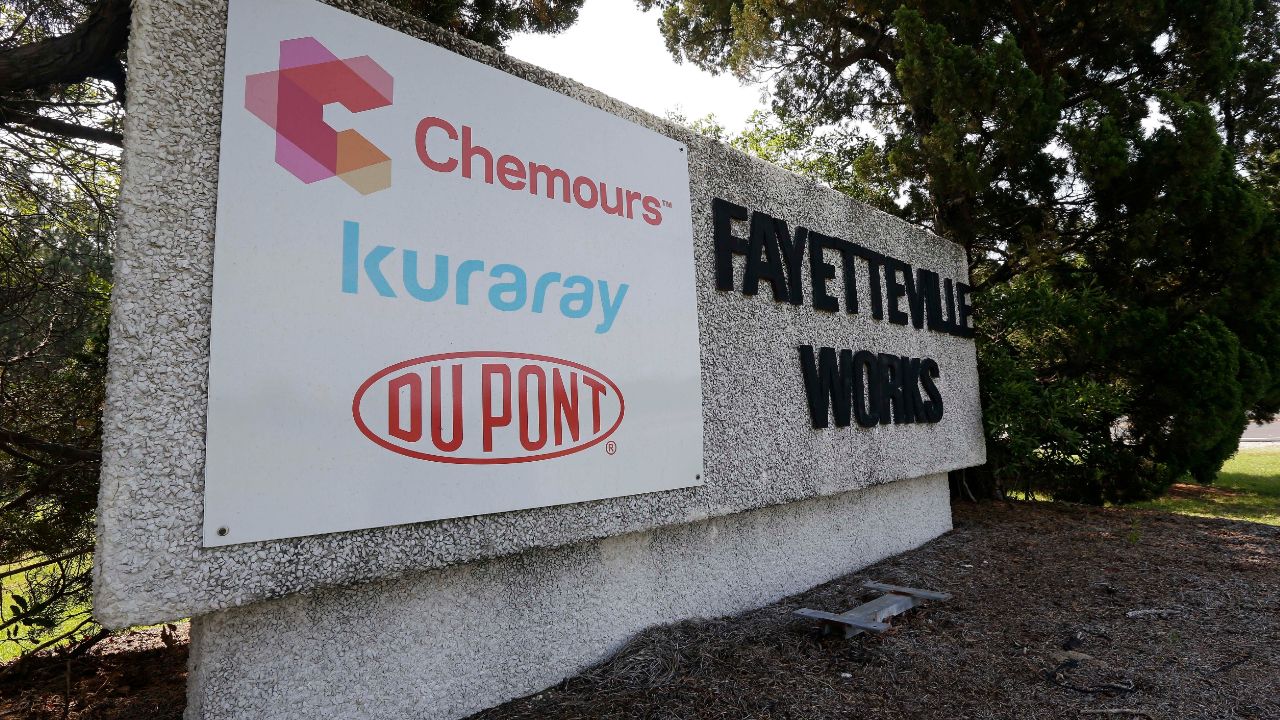FAYETTEVILLE, N.C. – North Carolina environmental officials Thursday ordered a former DuPont subsidiary to take more steps to stop chemicals known as PFAS from contaminating the Cape Fear River.
PFAS, per- and polyfluoroalkyl substances, have been called "forever chemicals" because they do not break down in the environment and can build up in people's bodies. The chemicals, including GenX, may cause reproductive and developmental problems and cancer, according to the Environmental Protection Agency. The chemicals are found in many common household items like fast food wrappers and teflon coating for cookwear.
The PFAS chemicals are found in the blood of most people in the United States, according to the Centers for Disease Control and Prevention.
The company, Chemours, originally agreed to a consent order in 2017 to clean up the chemicals that were contaminating drinking water for people along the Cape Fear River.
Officials with the state Department of Environmental Quality stopped the company, a spin-off from DuPont, from polluting waters from its plant and cut air pollution since 2017. The state signed a consent agreement with Chemours in 2019, and the new changes to that agreement mean the company will have to clean up contamination in the groundwater around its plant near Fayetteville.
“We have already issued significant penalties and ordered Chemours to stop actively polluting. Today’s actions lay out exactly how Chemours will clean up the residual contamination they’ve caused that continues to impact communities along the Cape Fear River,” DEQ Secretary Michael Regan said in a news release Thursday.
“This level of action is unprecedented and continues to build a foundation for the Attorney General’s broader investigation of PFAS in North Carolina. As a state, we will not wait for action from the federal government to provide relief for our communities and protect our natural resources,” he said.
In its own statement, Chemours said, "Prior to this agreement, actions already taken by our company had substantially reduced levels of site related PFAS from reaching the environment."
North Carolina Attorny General Josh Stein recently announced he would open an investigation into PFAS contamination in the state.
“North Carolinians expect and deserve clean water to drink,” Stein said in a statement this week. “The emergence of forever chemicals like PFAS has led to significant and dangerous pollution – and we must hold those responsible accountable. This investigation is about protecting people from current and future PFAS contamination and restoring North Carolina’s damaged natural resources. My office will not hesitate to bring legal action against any polluters if that’s what it takes to keep the people of North Carolina safe.”
The new additions to Chemours agreement with the state will be open for public comment before it's officially submitted to a judge in Bladen County for final approval.
Chemours will be "required to treat four identified ‘seeps’ which account for more than half of the contaminated groundwater reaching the river in two phases," according to DEQ.
The agreement means Chemours will have to filter at least 80 percent of the contamination out of groundwater around the plant before it reaches the river. It will have to treat the first seep by November and complete the work on all four by April.
"The permanent measure is the construction of a subsurface barrier wall approximately 1.5 miles long and groundwater extraction system that will remove at least 99 percent of PFAS to be completed by March 2023," DEQ said.
The company could face fines if it doesn't stick to the agreement.
"We believe this commitment is significant and meaningful; it aligns to our Chemours Corporate Responsibility Commitments to reduce the emissions of PFAS by at least 99 percent at all Chemours manufacturing sites worldwide. These commitments have established Chemours as a global leader in the area of responsible manufacturing within our industry," Chemours said in a statement.
Chemours said it has already spent more than $100 million to control contamination at the site.



